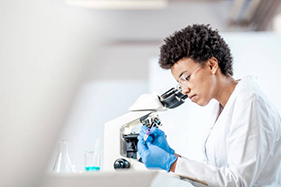Cancer remains one of the leading causes of death worldwide. While it poses a significant health challenge, many types of cancer can be prevented with the right knowledge and lifestyle choices. Understanding the causes, preventive measures, and treatment options is crucial for reducing your risk and managing your health effectively.
What Causes Cancer?
Cancer arises when cells in the body begin to grow uncontrollably. This uncontrolled growth can be triggered by substances known as carcinogens, which include:
- Physical Carcinogens: These are forms of radiation that can damage cellular DNA. Examples include ionizing radiation from X-rays and ultraviolet (UV) light from the sun. Prolonged exposure to UV light can lead to skin cancer, while exposure to radiation can increase the risk of various cancers.
- Chemical Carcinogens: These include substances that are toxic and can cause cancer. Smoking is a well-known risk factor due to the carcinogens in cigarette smoke. Asbestos, a material once commonly used in construction, is another potent carcinogen. Additionally, alcohol consumption, air pollution, and consumption of contaminated food and water can contribute to cancer risk.
- Biological Carcinogens: Certain biological agents can also lead to cancer. These include specific viruses like human papillomavirus (HPV), which is linked to cervical cancer; bacteria such as Helicobacter pylori, which can cause stomach cancer; and parasites that can increase cancer risk through chronic infection.
Prevention Tips

Preventing cancer involves a combination of lifestyle changes and regular health screenings. Here’s how you can reduce your risk:
- Avoid Smoking and Excessive Alcohol: Smoking is a major risk factor for many types of cancer, including lung, throat, and mouth cancers. Excessive alcohol consumption also increases the risk of cancers such as liver, breast, and esophageal cancer. Quitting smoking and moderating alcohol intake are crucial steps in cancer prevention.
- Healthy Diet: A balanced diet rich in fruits, vegetables, and whole grains can help lower cancer risk. These foods are packed with antioxidants and nutrients that protect against cell damage. Reducing consumption of processed foods, red meats, and foods high in sugar can also contribute to a lower cancer risk.
- Exercise Regularly: Physical activity is linked to a reduced risk of several types of cancer, including breast, colon, and prostate cancers. Regular exercise helps maintain a healthy weight, which is important since obesity is a known risk factor for cancer.
- Get Regular Checkups: Regular screenings and checkups are essential for early detection. Early-stage cancers are often more treatable, so regular health exams, including mammograms, Pap smears, and colonoscopies, can play a crucial role in catching cancer early.

Treatment Options
When cancer is diagnosed, treatment options vary depending on the type and stage of the disease. Common treatments include:
- Chemotherapy: This treatment uses powerful drugs to kill cancer cells or stop them from growing. Chemotherapy can be administered orally or intravenously and is often used in combination with other treatments.
- Radiation Therapy: This method uses high-energy rays, such as X-rays or proton beams, to target and destroy cancer cells. Radiation therapy is often localized to the area where the cancer is present.
- Surgery: Surgical options involve removing cancerous tissues from the body. The extent of surgery depends on the cancer’s location, size, and stage. In some cases, surgery is combined with other treatments to ensure all cancer cells are removed.
- Immunotherapy: This innovative treatment boosts the body’s immune system to help it recognize and fight cancer cells more effectively. Immunotherapy can be particularly effective for certain types of cancers and may be used alone or in combination with other therapies.
- Hormone Therapy: For cancers that are influenced by hormones, such as breast or prostate cancer, hormone therapy blocks the production or effects of hormones that fuel cancer growth.
- Targeted Drug Therapy: This approach uses drugs that specifically target abnormalities within cancer cells. Targeted therapies are designed to interfere with specific molecules involved in cancer cell growth and survival.
Prevention is Better Than Cure
Preventing cancer is always preferable to treating it. By adopting a healthy lifestyle, avoiding known carcinogens, and staying proactive with regular checkups, you can significantly reduce your risk of developing cancer. Remember, early detection through screenings and a commitment to healthy living are key strategies in the fight against cancer.
Stay informed, make healthy choices, and consult with healthcare professionals to maintain your health and reduce your cancer risk. Your well-being is in your hands—take action today for a healthier tomorrow
.


